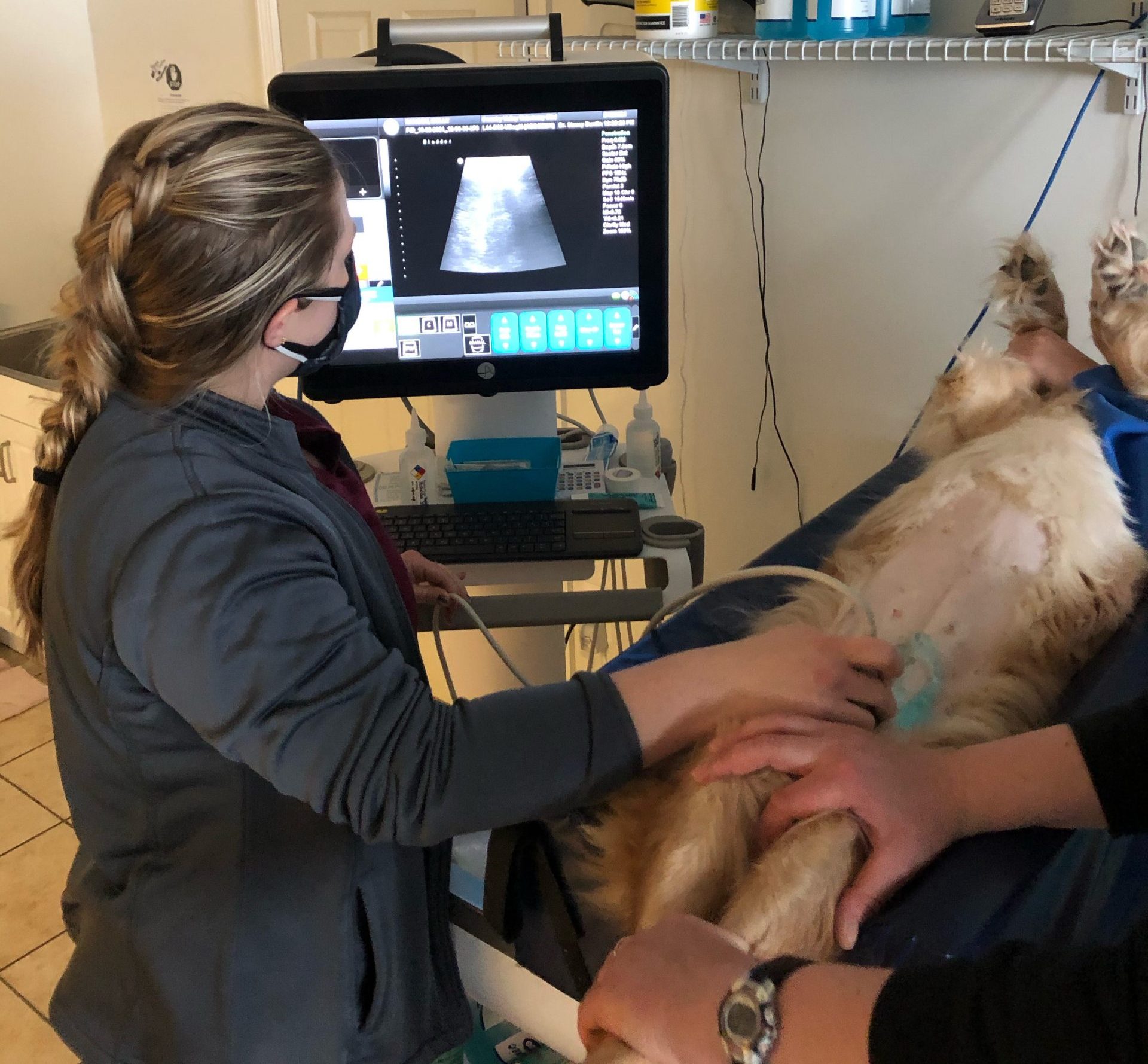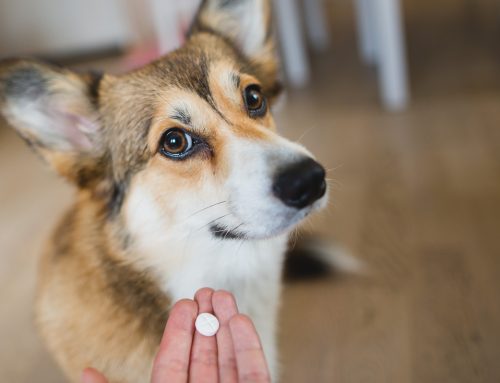Our furry pals are family, and fill our lives with lots of love, wagging tails, and couch cuddles. Caring for your pet requires regular veterinary care to ensure they thrive and remain healthy throughout all life stages. Fortunately, veterinary medicine advances have provided tools and medications that allow our pets to live longer, healthier lives, and have extended the time pets remain by our side. One of these advances is ultrasound, a safe, non-invasive imaging technique and a diagnostic tool your veterinarian uses to examine your pet’s organs and structures pain-free. Similar to a video, an ultrasound machine records echoes or sound reflections of high frequency sound waves to create a live image on a computer screen. Unlike an X-ray, an ultrasound provides a two-dimensional, more detailed view of your pet’s internal organs, ligaments, and tendons, and their eyes. An ultrasound exam does have some limitations—because ultrasound waves cannot pass through air or bone, this technique cannot be used to examine healthy lungs, brain, spinal cord, or other bone structures—but an ultrasound examination on your pet still has numerous benefits, including:
- Allowing a real-time diagnosis of a medical problem
- Lack of anesthesia for most pets
- The need for only minimal restraint
- Low stress for pets
Our Country Valley Veterinary Clinic team was excited to add this important diagnostic tool to our practice in 2017, and we have since helped countless pets with this advanced medical care. Our veterinarians may recommend an ultrasound exam for many reasons, including the following, which are three of the most common:

- Your pet has abnormal lab work — Annual or more frequent blood work provides your veterinarian with information on your pet’s overall organ function, presence of infection, and red blood cell health, and abnormalities fill in one piece of your pet’s overall health puzzle. For example, if your pet has an elevated liver or kidney value, your veterinarian may recommend an ultrasound of their abdomen to examine their liver or kidney function, size, and shape. Elevated blood values may indicate a mass, or a type of cancer that cannot be diagnosed solely through a blood test. Ultrasound can also serve as a guide when collecting abnormal cell samples, or biopsying organs to further diagnose and treat disease.
- Your pet was hit by a car — Pets who experience trauma, such as being hit by a car or attacked by another animal, are at risk for internal bleeding and organ damage. During these emergency situations, our veterinary team will perform a focused assessment with sonography for trauma exam (i.e., FAST ultrasound). This fast method allows your veterinarian to evaluate your pet for the presence of blood, free fluid, organ trauma, or heart complications usually in less than two minutes. Quickly identifying these serious medical conditions helps determine the next steps and gives your pet a better chance.
- Your pet has a lump or pain in their abdomen — An ultrasound examination can help identify the exact location, size, and shape of an internal mass, swelling, or pain. Proper identification will allow your veterinarian to determine next treatment steps, such as biopsy, surgery, or continued monitoring. During your pet’s physical examination your veterinarian may recommend an ultrasound if they find the following:
- Swelling in or near the abdomen
- Pain when touching the abdomen or other internal location
- Mass or lump in the abdomen, or near an organ such as the kidney or liver
Our Country Valley Veterinary Clinic team is proud to offer this important diagnostic tool to help ensure your pet receives the most advanced quality medical care. Call our office if you have any questions about the benefits of an ultrasound exam for your pet, or to schedule an appointment.







I find it helpful to know that ultrasound would identify the location, size, and shape of a lump in your pet’s body. My son told me earlier that he noticed a lump on our dog’s lower abdomen. Perhaps it’s time to take our pet to a reputable veterinarian to get an ultrasound. Thanks.
We find ultrasound very helpful when taking a peek inside our pet’s bellies (and chests). I hope your son’s dog is doing well. – Crystal C. Murray, DVM
Just last Thursday, my neighbor came over for lunch and had told me she was looking into ultrasounds for small animals. This came after noticing how her pet cat was behaving awkwardly and was constantly tired after it was hit by a car. I offered my help to research it and this led me to your brilliant article here. My favorite part has to be where you mentioned that pets who experience trauma, such as being hit by a car or attacked by another animal, are at risk for internal bleeding and organ damage. This is a good point you raise here, which I’m sure those interested in seeking out these services will be glad to have learned of. Thanks for this! I’ll be sure to pass this on to my neighbor later!
Thank you, and I hope your neighbor’s kitty is doing ok! – Crystal C. Murray, DVM